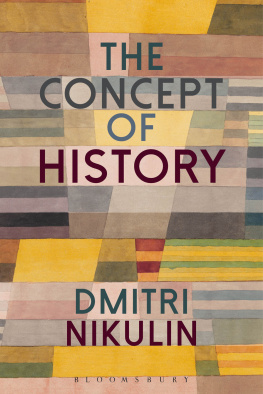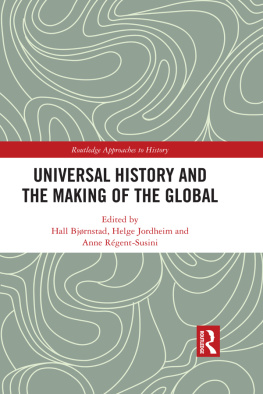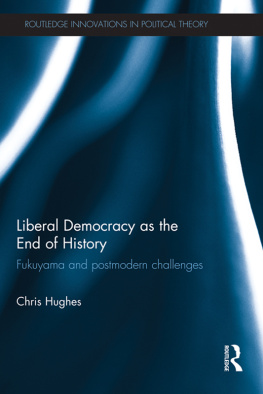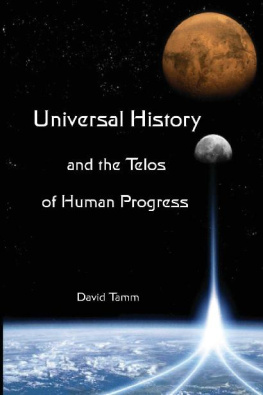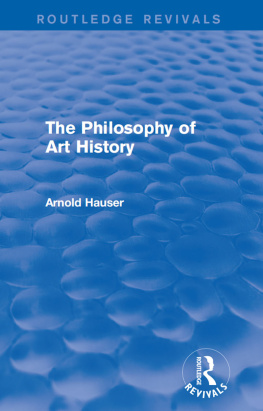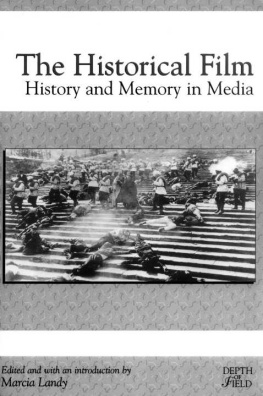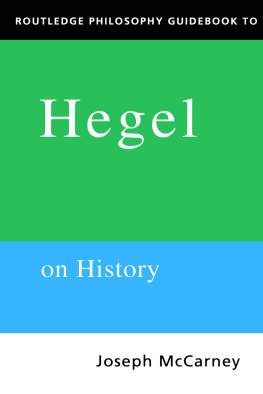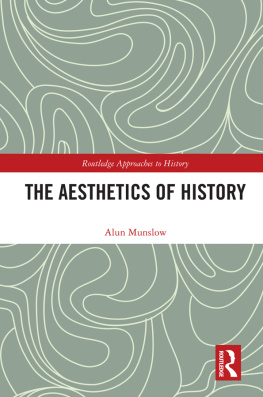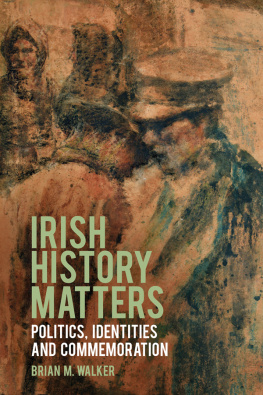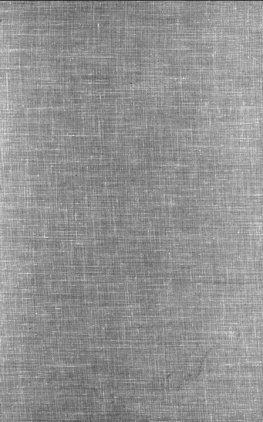The Concept of History
Also available from Bloomsbury
Philosophy of History After Hayden White , edited by Robert Doran
Deleuze and Guattaris Philosophy of History , Jay Lampert
Full History , Steven Smith
This book originated in a simple question that gnes Heller and I once discussed at length: if we had to choose, what would we have liked to be preserved of us once we are not physically present here anymorean imageless name or an anonymous image? I dedicate this work to herdear friend, wise colleague, and passionate interlocutor.
The Concept of History
Dmitri Nikulin
Bloomsbury Academic
An imprint of Bloomsbury Publishing Plc
Contents
History is one of those subjects about which everyone seems to have an opinion. In this respect, history differs from mathematics and science, yet appears similar to art, morality, and politics. Ongoing conversations about these subjects that can be shared by everyone pervade both the public sphere and our most intimate personal experiences. In a sense, then, interest in history is universal, even if a universal history might not exist. History, however, is considered differently at different times and epochs, which themselves seem to be defined by a particular understanding of history. No wonder that history is a pluri-vocal term and has a broad range of meanings. This makes writing about history both a difficult and compelling task that calls for clarification of the (or at least a) meaning of history.
Everybody is engaged, to an extent, in making history. Moreover, everyone takes part in transmitting history, within history. But some people also write about history, which makes it a specialized discipline of interpreting history ex professo , digging into the past and presenting certain things that are considered exemplary and as such are kept and remembered within a written tradition. History, however, is not only made and told but also studied and reflected upon: historians tell a history, whereas others (philosophers) explain what it is, why and how it is told. Yet, since everyone lives in history (or in a history) and has an opinion about it, historians or historiographers too get engaged in thinking about history. This explains why there has always been a certain rivalry between historians and philosophers of history. To use Kants metaphor, historiographers suspect philosophers of being empty and lacking in historical content, whereas philosophers suspect historiographers of being blind and lacking in the understanding of the logic or structure of what history is and how it works. The mutual disbelief is probably largely exaggerated on both sides. In this book, I am not doing a history of history but rather attempting a philosophy of history, which seems to be a timely enterprise in light of a recent surge of general interest in philosophy of history that somewhat waned with the end of the short twentieth century. In what follows, I want to present history both negatively (in what it is not) and positively (in what it is), and thus to demystify the concept of history, which in modernity has become inescapably teleological and universal.
What history is not . First of all, there is no end of or to history, no objective purpose or telos that humans inevitably will have to realize at a certain point if we havent already done so. No doubt, we set various purposes for ourselves, both collectively and individually, which come as a result of rational deliberation or decisions that are not rational. Some of these purposes prove to be beneficial to a community or society and some not; some repressive and some liberating. But all such purposes are realized and corrected pragmatically, by and within human activity. Any purpose that we can possibly see or distinguish in history is an implicit or explicit construction of an intended goal put into history. Such a goal may or may not be successfully implemented within either an immediate history or the history of longue dure, and quite often it turns out to be not what we would have expected, planned, or hoped for.
The modern understanding of history that arose at the end of the seventeenth century, however, is distinctly marked by teleology: history must have a purpose, because it must realize a hidden objective planeither of divine design or of the order of things in naturethat is unfolding in and through history. On this account, history usually moves toward the realization of a greater good in human society, be it freedom, justice, or commonly shared and used wealth. As such, history becomes a kind of a theodicy of progress that explains how the tragedy of visible human suffering might be compatible with the idea of a supremely good and rational cause of the human and natural world. Psychologically, a teleology of history is attractive and appears liberating, since, despite all the calamities, all the unjust and unjustified suffering, a plan that seems to shimmer through will eventually put everything into the right order and thus justify peoples suffering. Of course, the one who happens to discover this plan and render it explicit assigns himself a particular role in history, which turns out to be equally pre-established in its plan.
One reason that people like comedies is because they end well. Similarly, people want to see history as a divine comedy that ends well in a trans-historical culmination that grants meaning to past suffering, a meaning that has always been there even if concrete histories are filled with horrible events. Only a telos that would rectify all the injuries and injustices of history and would bring in moral or other judgment will redeem history. However, history is not teleological; it does not move toward a predetermined (natural or god-given) purpose or end. A good ending can only be given to a history by us through our shared effort. History is thus not comic a priori , but should be rendered comic by us.
If there is a divine or natural plan for humankind that we have to and do follow without always knowing it, then we need revelatory philosophical work The belief in a teleology of history, that history has a purpose, either a doom or salvation of humankind, is deeply rooted in religious thinking and, with emancipation from religion, becomes a kind of secular religion itself.
If history is not teleological, it is not universal either: it is not a history in which different peoples play different roles or fulfill missions assigned to them in advance by a divine plan or natures natural script. History, then, does not evolve or progress, whether through individuals (great people) or communities (historical peoples), who thus are not in the role of puppets in a more-than-human comedy of universal history.
But if there is no end in and to history, there is no beginning of it either. Therefore, there is no single, singular, and unique event that would define historythe event before which history did not exist but would change it from now on, once and forever. Hence, contra the idea of universal history, history is always present in its entirety at any time and in every human culture, and not just in its assumed accomplishment in modernity.
Much of the discussion and examples in this book are taken from ancient history. The reason for this is that, although history is always there where humans are, a coherent transcription and writing of history begins in antiquity. With writing comes also reflection on history, i.e., not only writing history but also writing about history as an attempt to explain the very possibility of remembering and speaking about how and why things have been.

